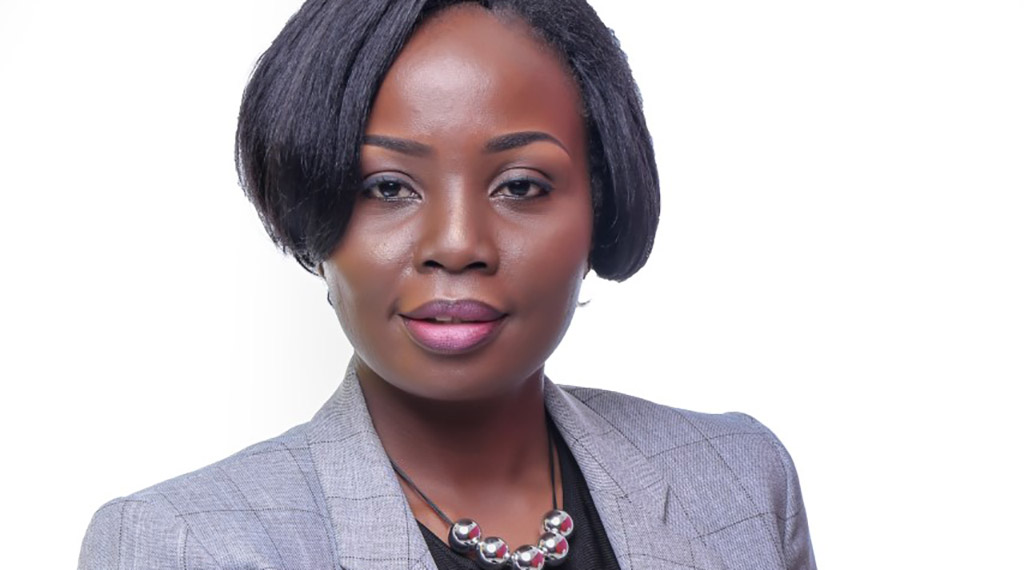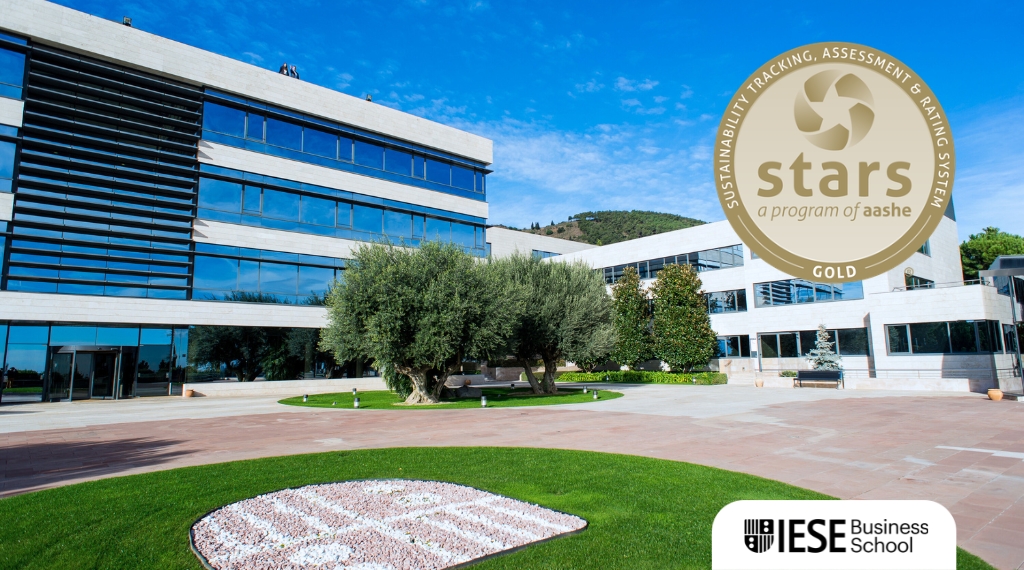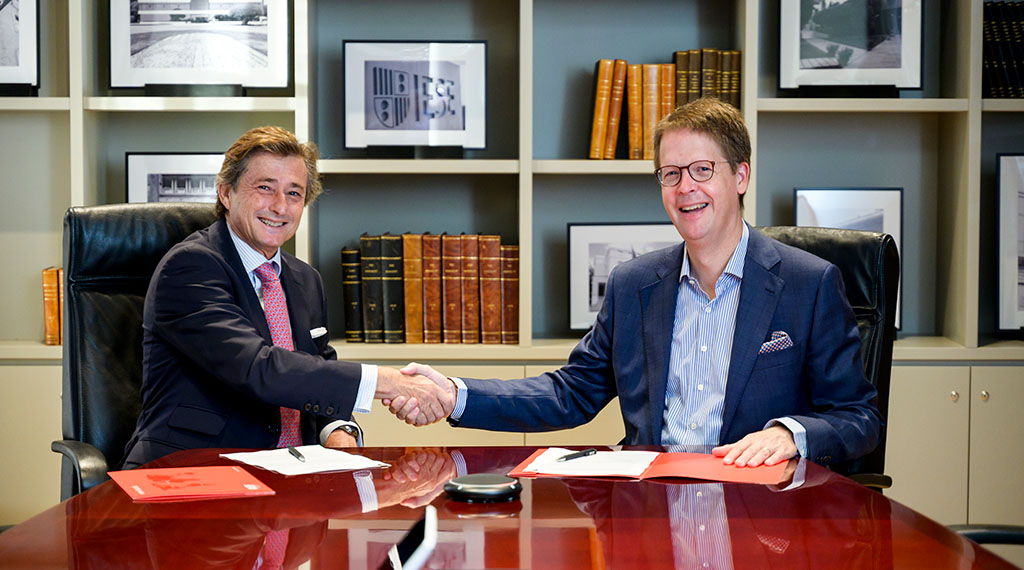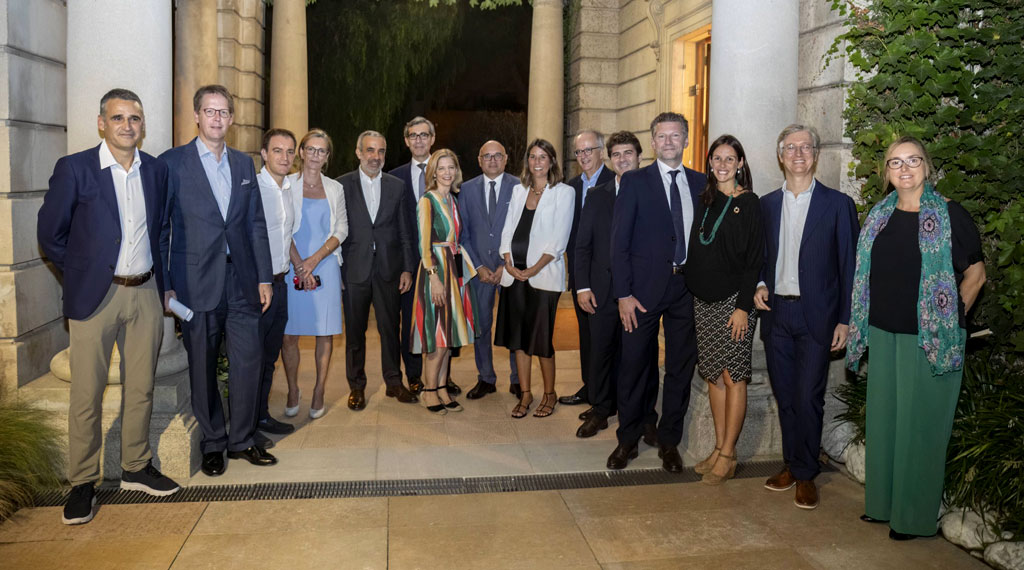Stories
Sowing sustainability
Inclusive transformation depends on building ecosystems across supply chains to catalyze change
At the Alliance for a Green Revolution in Africa (AGRA), Aggie Asiimwe Konde works to boost incomes and food security for smallholder farmers in sub-Saharan Africa.
December 15, 2020

While COVID-19 has raged out of control throughout much of the United States and Europe, its impact on health in Africa has not been as devastating as some health experts feared. Scientists speculate that this could have something to do with the extensive community, health and public awareness ecosystems built up over many years of dealing with other disease outbreaks.
“One of the biggest lessons I’ve taken away from 2020 is the need to build ecosystems that link and shorten supply chains for input and output markets,” says Aggie Konde, Vice President of Program Development and Innovation at the Alliance for a Green Revolution in Africa (AGRA), an organization that is all about building sustainable agricultural systems to increase incomes and boost food security for smallholder farmers.
COVID-19 has forced us all to “take a deeper look and prioritize some of the issues that we always knew we needed to address,” she says. For AGRA, that was realizing the urgency of building partnerships and programs to improve the efficiency, safety and competitiveness of domestic agri-food systems. “In sub-Saharan Africa, there is a tendency for businesses to want to do everything themselves. So, a manufacturer will also try to handle logistics, retail, financing, and so on. This strains businesses, saps resources, reduces margins and is unsustainable.”
While there are various actors who can execute the various tasks in the chain efficiently, the problem is they are not visible to each other nor interlinked, leading to logistical difficulties – for example, when smallholder farmers try to engage in cross-border trade.
That’s where AGRA comes in: “By supporting efforts that link all these actors in the supply chain, we can improve competitiveness, reduce the costs of doing business and link demand to supply, allowing inclusive businesses to thrive. I think this can bring more farmers into the cash economy.”
Konde cites an input finance model implemented in Ghana, Burkina Faso and Mali: “It involved six banks and 43 SMEs, where 40% of the risk was taken by value-chain actors and 60% by the banks. This model unlocked loans worth US$1.7 million for 19,000 farmers.”
Leadership pillars
Before joining AGRA in Kenya, Konde worked as a marketer in the private sector in her home country of Uganda, which taught her about “building opportunities in areas where there was little market exploitation.”
Then, she worked in media, which was part private, part public-facing: “It was in this role that I began to appreciate the need for inclusive growth in development, which starts with providing those who are excluded with a platform where they can speak up. I started to think hard about how to build inclusive economies that leave no people behind and that support farmers in being food secure.”
A good leader is one dedicated to improving people’s livelihoods
It also made her reflect on the nature of leadership: “A good leader is one dedicated to improving people’s livelihoods. In Africa, as elsewhere, we want our leaders to be accountable, and that requires a citizenry that is involved and proactive. The private sector must demand that their public leaders create the environment necessary for people to thrive. Leadership is about creating functioning systems, because if you only build one pillar, it’s just a matter of time before the whole thing collapses. Leaders must take a holistic approach to make sure the entire ecosystem is sustainable.”
Konde gives the example of the financial sector, which views agriculture as high risk – and rightly so, as the risks in financing agricultural companies measured by default rates are twice as high as in other sectors. Investment opportunities in the production of crops are limited, owing to the sector’s reliance on rain and its vulnerabilities to external events such as climate change.
However, crop production is just one segment of the value chain – albeit a vital one, given that an agricultural company cannot grow if its crops do not grow. But the value chain encompasses many other investment opportunities, including climate smart technologies, logistics, input provision and processing. That is why there is such a need for inclusive finance that looks at all these elements collectively and is willing to share the risks more broadly. This is AGRA’s role: to show these interdependencies, bring companies together and formulate solutions.
From surviving to thriving
Of course, before you can have commercial farming ambitions, you first need to increase household productivity and answer to the basic need of self-sufficient food all year round. “We aim to support smallholder farmers to rise above subsistence farming, producing surpluses that can be sold to generate extra income that is used to improve their livelihoods, educate their children and move above the poverty line.”
While participating in IESE’s Global CEO Program for Africa in 2019, Konde was able to “learn, network, share experiences and unlock some of Africa’s greatest opportunities. Together with my classmates from East and West Africa, we examined problems, discovered opportunities and designed scalable, wholly African solutions.”
We examined problems, discovered opportunities and designed scalable, wholly African solutions
AGRA’s vision is bold: to transform the lives of 30 million smallholder farmers from a solitary struggle to thriving businesses. It is a vision based on the conviction that, by joining forces (both public and private), African-based solutions can empower Africa’s farmers to feed the continent and the world sustainably.
“We take a tailored approach,” Konde explains of AGRA’s work in 11 countries. “We don’t tell countries what to do. We support local government priorities because we want to create self-sustaining systems. The way we increase productivity will differ from country to country. In one, it may be supporting efforts to access quality seeds. In another, the focus may be on the last-mile delivery. Or it may be inclusive financing solutions for those at the bottom of the pyramid. Or a combination of multiple solutions, including policy support and partnerships.”
“The important thing,” she continues, “is that the systems are functioning, and that farmers have access to best practices, financial services, enabling policies and markets. The countries set the priorities, and we work with them to make it happen – providing technical assistance, investing in thousands of SMEs to overcome market barriers, and linking the public sector and research institutions with private sector actors who can catalyze change.”
I want to empower the next generation to become the leaders that Africa needs
As someone who often finds herself as the lone woman at the table, Konde is keen to mentor other women, helping them to break through their own glass ceilings. “I try to take on around 15 girls a year, introducing them to people and giving them opportunities to see the world from a different perspective. I’d like to build a digital solution that could reach many more young women – and young men, too. I want to empower the next generation to become the leaders that Africa needs.”
Her parting words for attaining sustainable, inclusive transformation in Africa are just as applicable to business leaders the world over: “We need to stop running a marathon and start passing the baton in a relay.”
This story is published in IESE Business School Insight #157.


